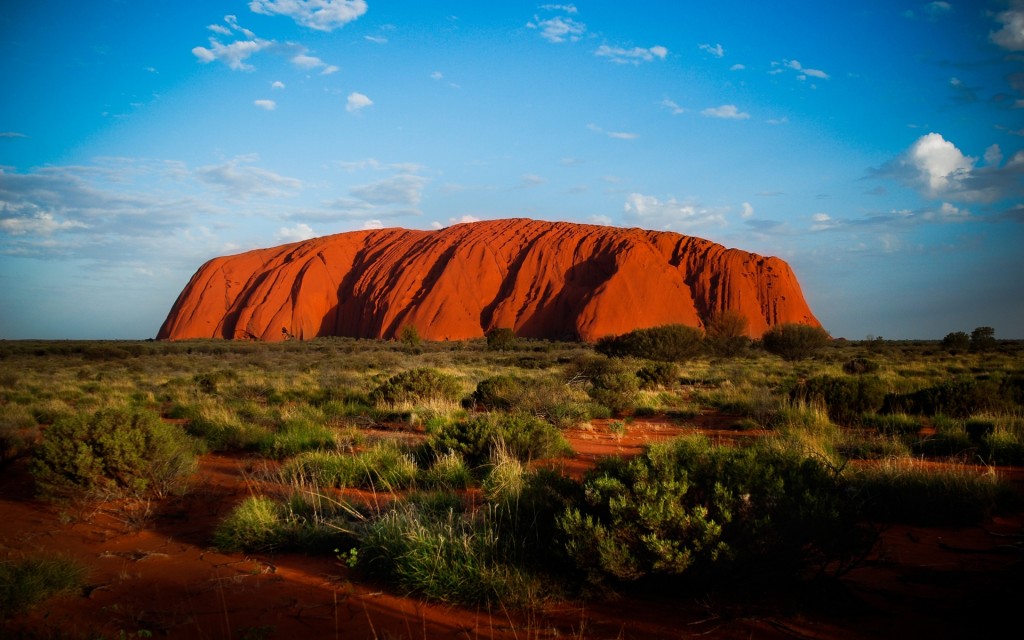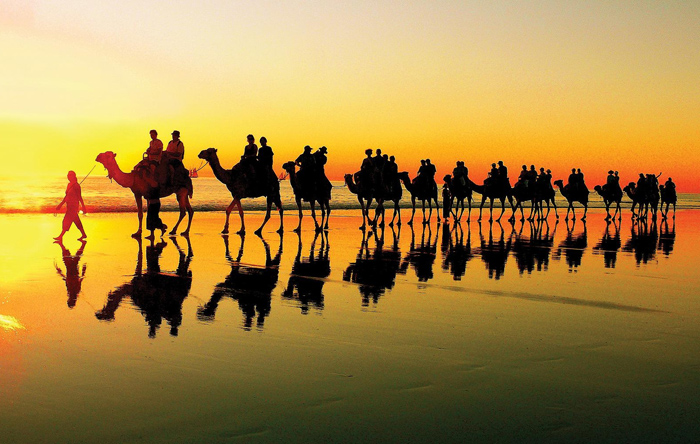Known for its endless beauty, exotic animals, awesome cafes, and infinite beaches, Australia is an adventure traveller’s paradise.

 Uluru-Kata Tjuta National Park
Uluru-Kata Tjuta National Park Blue Mountains National Park
Blue Mountains National Park Bondi Beach
Bondi BeachNo visit to Australia is complete without experiencing the beach in all its glory and there is no better place in Australia to do it than Bondi Beach. Here is where you’ll find beautiful sand, refreshing blue water, gorgeous tanned bodies, and fantastic food. In the mood for some fun, the people at Bondi are more than happy to share their volley ball game, help a novice surfer, or include you in their picnic. There are various cafes, shops, and restaurants along the 6 km Bondi to Bronte coastal walk if a long stroll is what you want. A word of caution…the riptides off the beach can be treacherous so if you’re not used to swimming in the ocean stay in the shallow water. Of course there are those famous Bondi lifeguards to save you!


 Follow
Follow









